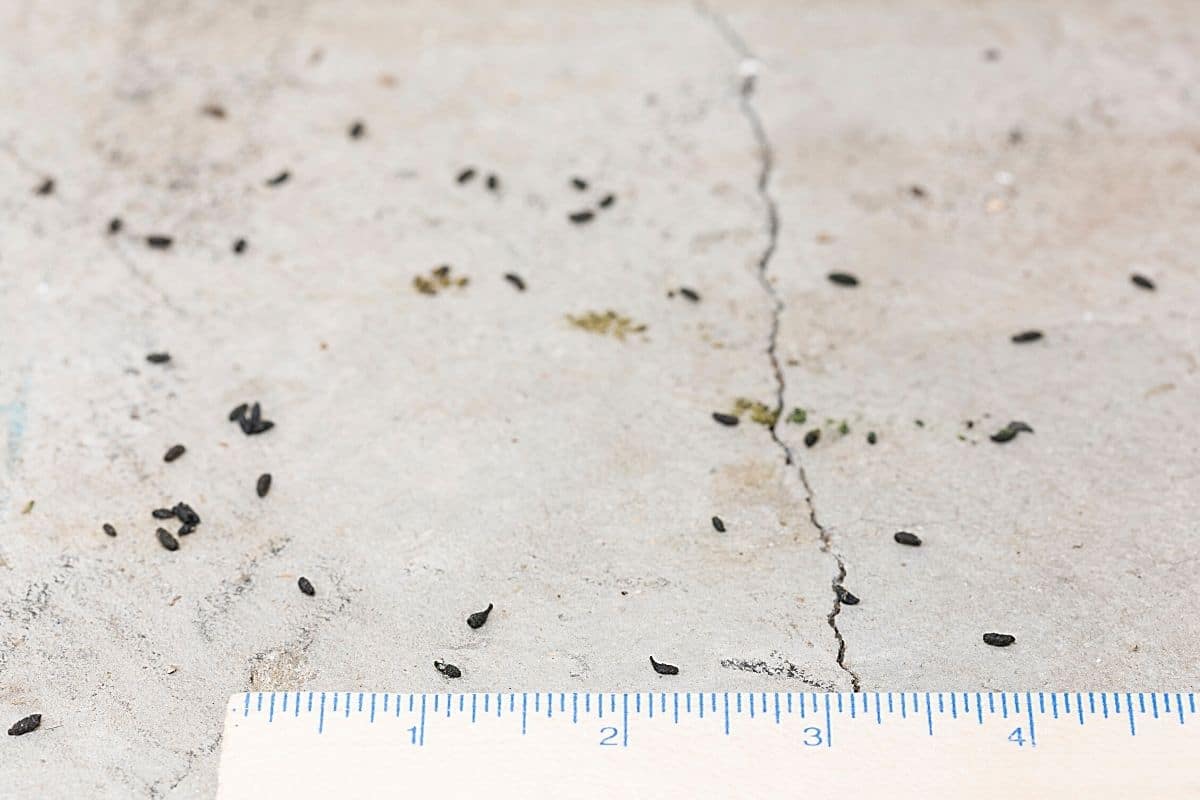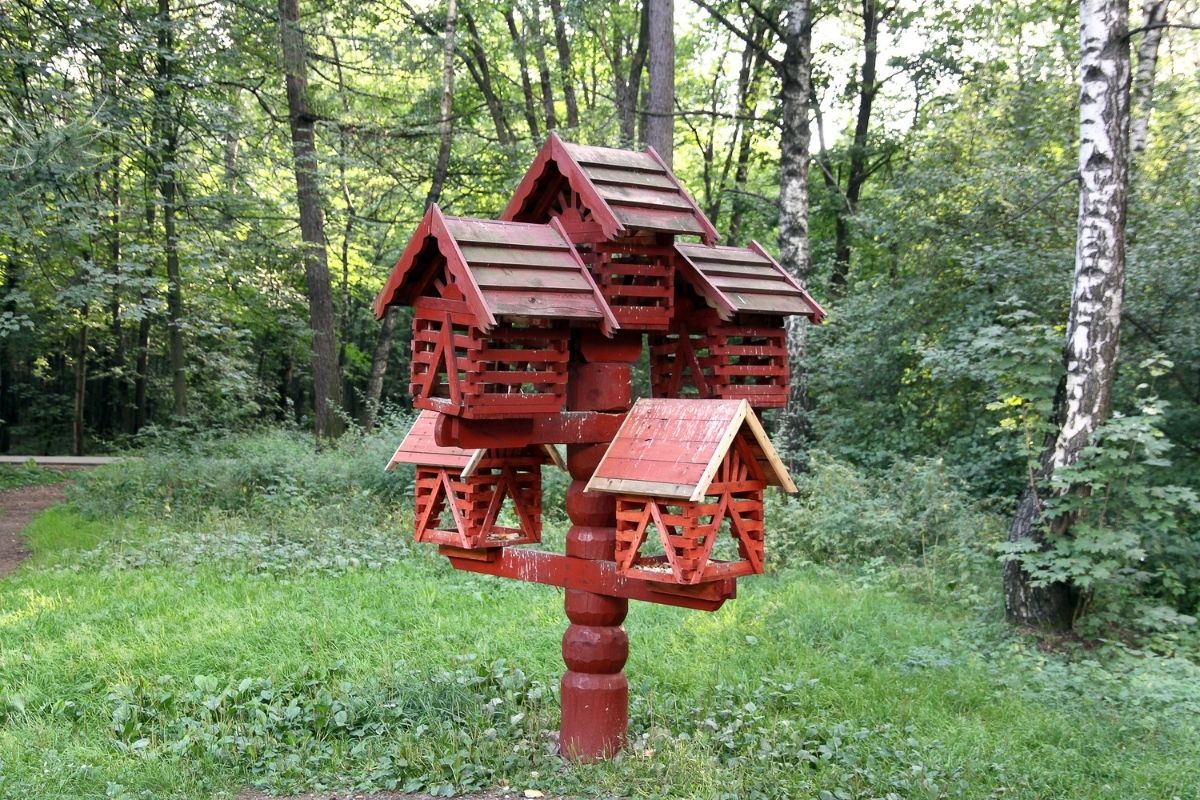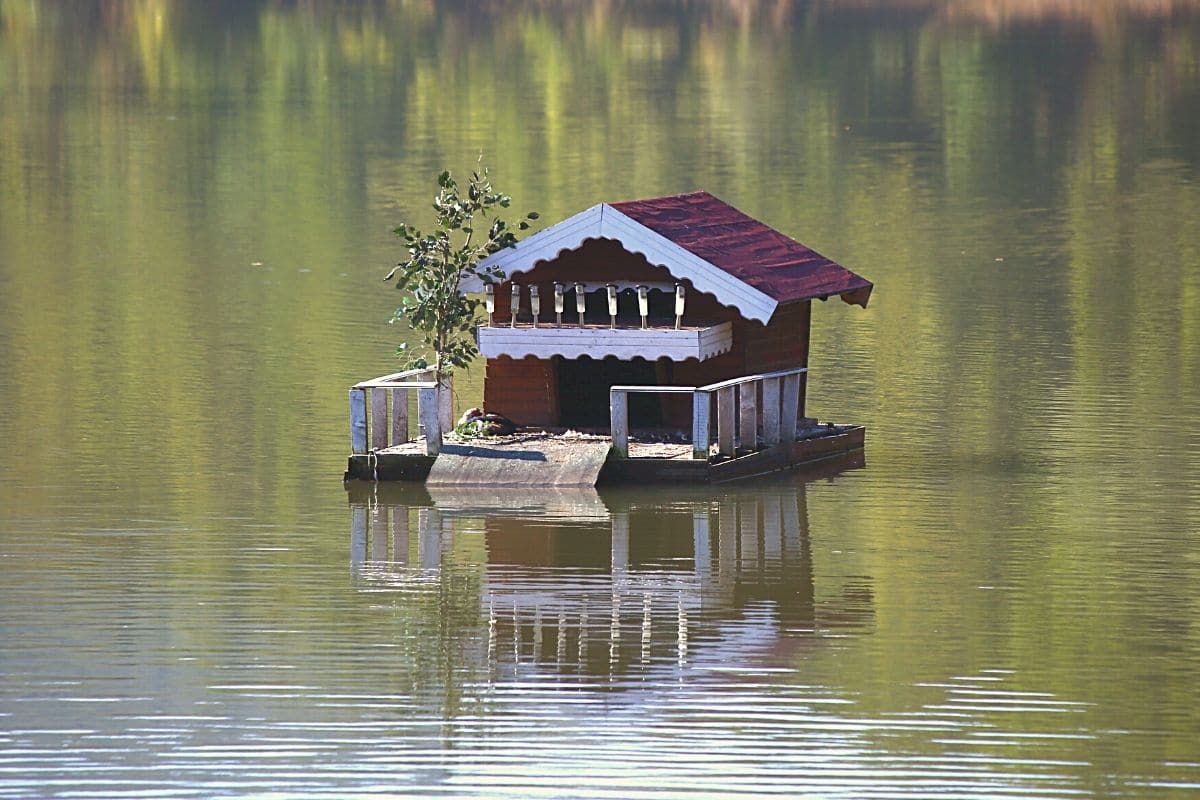Bird food is in great demand not only for birds. Mice come to the bird feeder and find your garden a paradise. With the right tips, you can secure the bird house from rats and mice.
If you want to feed the birds around your house and garden in winter, you should be wary of an impending plague of mice. Various signs indicate that the rodents have helped themselves to the bird food:

- Mouse droppings at bird house
- Suspicious noises
- Traces around the bird house
- Birds do not come to the bird house anymore
- Bird food is quickly gone
Secure bird food effectively
So that you do not attract the rodents, various measures are suitable. The following tips will help you keep mouse and co. away.
Contents
Regular cleaning
If the food attracts a family of mice to the nesting site, regular cleaning can help. It is often the food remains on the floor that alert the mouse to the paradisiacal conditions. Sweeping up the food remains daily is recommended. In addition, you should not feed the birds in the garden from the ground. Various wild animals subsequently besiege the garden. In the long term, these not infrequently advance into the house.
Choice of location
With the right location, you can limit the risk that the food will attract the mouse to the feeding site. At best, the bird’s den is in plain view. Mice like to hide in dark bushes or hedges to protect themselves from natural enemies such as cats. If necessary, it is enough to change the location of the birdhouse. Hanging birdhouses from trees is not a hundred percent effective means. The small rodents will even climb trees if the bird food is tempting. Hanging birdhouses are more suitable. However, you should be careful that the remains of food on the ground do not attract rodents.

Limit the amount of food
Limiting the amount of leftover food can help prevent attracting wildlife to your yard. The amount of food determines whether nocturnal rodents will come to the birds’ home. If the feathered animals destroy the birdseed during the day, there is no incentive.
Camera surveillance
If there are no signs of a mouse family in the garden, a wildlife camera may be worthwhile. Thanks to sensor, the camera records all the animals that cavort in the garden at night. It’s often surprising to home and garden owners who all come to visit during the night. Early detection can make it easier to drive away mice and co. Over time, rodents become more prevalent.
Build a water moat
If local conditions allow, you can build some sort of moat around the feeding area. This moat can deny rodents access.

Wrap wire mesh
Another way to protect the birdhouse from rodents is wire netting. This approach is suitable for birdhouses that are located on trees. Wrap the wire net around the tree so that this is impassable for rodents.
The last resort
When there is no more food in the garden, rodents often disappear on their own. If necessary, essential oils can help drive the mice away from the birdhouse with an acrid smell.
Frequently asked questions
Can mice climb?
The mouse is generally considered a passable climber. Even birdhouses on trees are not too far for the mouse to reach food.
Are there any regulatory requirements for mice in the garden?
If the mouse helps itself to the food of the birds, it is your own problem. There is only an obligation to report a rat infestation on the property. As the owner of a property, you are obliged to take the appropriate measures to ensure that the rats disappear from the property.
Does the mouse come alone?
A mouse rarely comes alone. Rather, it is entire groups that take up residence among food scraps. Preferably, you effectively prevent the infestation.

